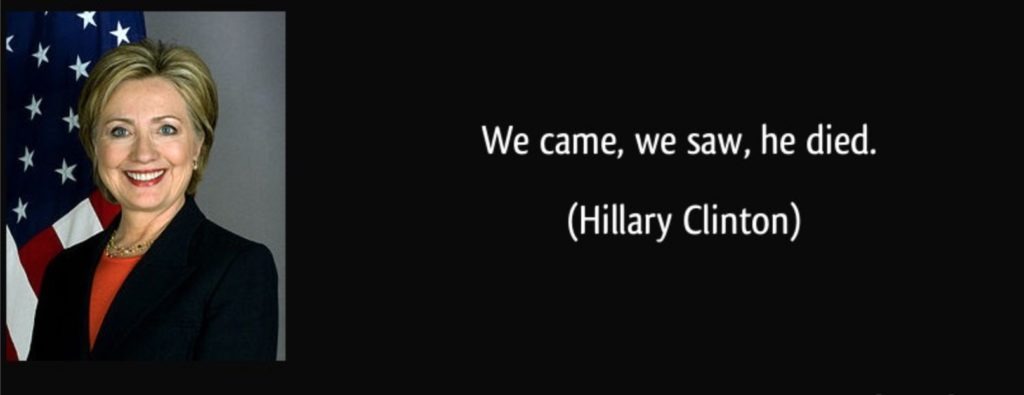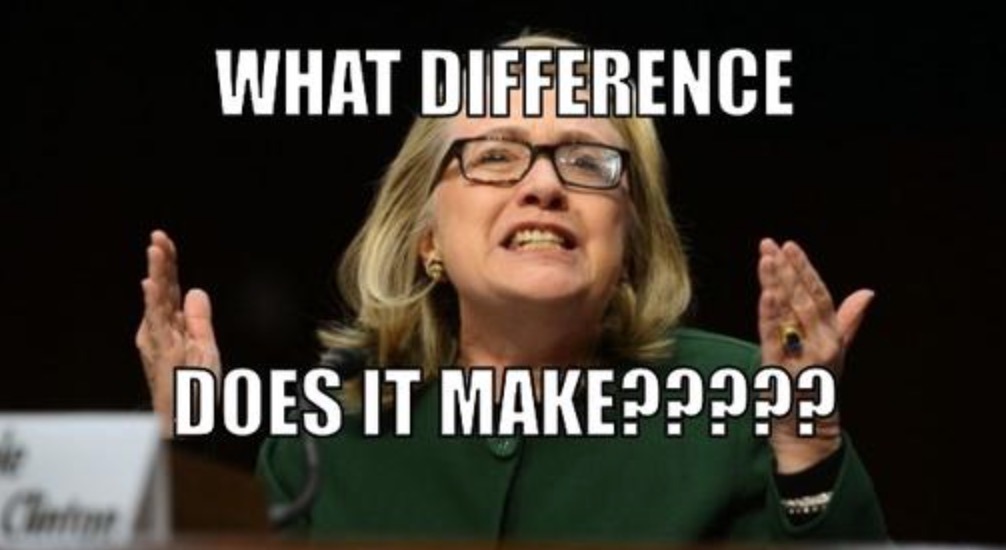
In retrospect, Obama’s intervention in Libya was an abject failure, judged even by its own standards. Libya has not only failed to evolve into a democracy; it has devolved into a failed state. Violent deaths and other human rights abuses have increased severalfold. Rather than helping the United States combat terrorism, as Qaddafi did during his last decade in power, Libya now serves as a safe haven for militias affiliated with both al Qaeda and the Islamic State of Iraq and al-Sham (ISIS). The Libya intervention has harmed other U.S. interests as well: undermining nuclear nonproliferation, chilling Russian cooperation at the UN, and fueling Syria’s civil war.
As bad as Libya’s human rights situation was under Qaddafi, it has gotten worse since NATO ousted him. Immediately after taking power, the rebels perpetrated scores of reprisal killings, in addition to torturing, beating, and arbitrarily detaining thousands of suspected Qaddafi supporters. The rebels also expelled 30,000 mostly black residents from the town of Tawergha and burned or looted their homes and shops, on the grounds that some of them supposedly had been mercenaries. Six months after the war, Human Rights Watch declared that the abuses “appear to be so widespread and systematic that they may amount to crimes against humanity.”
As a consequence of such pervasive violence, the UN estimates that roughly 400,000 Libyans have fled their homes, a quarter of whom have left the country altogether.
– From the post: The Forgotten War – Understanding the Incredible Debacle Left Behind by NATO in Libya
Shortly after the NATO-led war which ousted Libyan leader Muammar el-Qaddafi, then Secretary of State Hillary Clinton ebulliently boasted with a characteristic sociopathic giddiness, the following on network television:
From Iraq to Libya, and indeed across the entire planet, the U.S. government has an uncanny ability to take an already bad geopolitical situation and turn it into a complete and total chaotic humanitarian disaster. It’d be one thing if the woman in the above video clip had been disgraced and forced into exile in Chappaqua, but the disturbing reality is she will most likely be promoted to the next President of these United States.
In order to fully appreciate what a clueless homicidal maniac she is, let’s reexamine the unmitigated nightmare that is Libya. A nightmare that Clinton and her interviewer laughed uncontrollably about creating.
From Reuters:
At least 47 people were killed on Thursday when Libya’s worst bomb attack since the fall of Muammar Gaddafi hit a police training center as hundreds of recruits gathered for a morning meeting.
No group immediately claimed the attack in the town of Zliten, but suicide blasts and car bombings have increased in Libya as Islamist militants have taken advantage of the North African country’s chaos to expand their presence.
Since a NATO-backed revolt ousted Gaddafi, Libya has slipped deeper into turmoil with two rival governments and a range of armed factions locked in a struggle for control of the OPEC state and its oil wealth.
In the chaos, Islamic State militants have grown in strength, taking over the city of Sirte and launching attacks on oilfields. Islamic State fighters this week attacked two major oil export terminals.
Western powers are pushing Libya’s factions to back a U.N.-brokered national unity government to join forces against Islamic State militants, but the agreement faces major resistance from several factions on the ground.
For more than a year, an armed faction called Libya Dawn has controlled Tripoli, setting up its own self-declared government, reinstating the former parliament and forcing the recognized government to operate in the east of the country.
Western officials say forming a united government would be the first step in Libya seeking international help to fight against Islamic State, including training for a new army and possible air strikes against militant targets.
But hey…

Finally, if you want to understand just how long the war against Syria has been in the works (before ISIS became a huge problem), let’s revisit the following 2011 tweet by “Crazy” John McCain:
Qaddafi on his way out, Bashar al Assad is next.
— John McCain (@SenJohnMcCain) August 21, 2011
And you wonder why the world is in the state it’s in…
For related articles, see:
The Forgotten War – Understanding the Incredible Debacle Left Behind by NATO in Libya
Tunisian Terror Attack Suspects Trained in U.S. “Liberated” Libya
Incredible Tweets from John McCain on Libya and Syria from 2009 and 2011
In Liberty,
Michael Krieger
Donate bitcoins: 35DBUbbAQHTqbDaAc5mAaN6BqwA2AxuE7G
Follow me on Twitter.



Newly released Hillary emails prove a motive for 2011 Libya war was gold grab and Libyan plans for gold currency.
See here: https://www.foia.state.gov/searchapp/DOCUMENTS/HRCEmail_DecWebClearedMeta/31-C1/DOC_0C05779612/C05779612.pdf
“As bad as Libya’s human rights situation was under Qaddafi” ?????
Drinking the Kool Aid again are we Michael (you believe what the Presstitutes tell you?
Here’s a list of the incredible “human rights abuses” (lol) committed by Gaddafi… kinda makes the USA look a bit like a gulag (come to think of it…).
http://www.globalresearch.ca/libya-ten-things-about-gaddafi-they-dont-want-you-to-know/5414289
Michael, settle down, those aren’t my words, which would have been clear to you if you had bothered to click on the link.
From an empirial perspective I think it should be seen as a huge success.
– A regional ruler who wanted to start an initiative for a local African currency taken out.
– A relative stable country destroyed, much easier to loot oil from: Classic divide and conquer.
– Libya together with Morroc took in most of the african refugees. Without Libya and Syria there is no stop (ie. a stable wealthy country) for refugees on their way to Europe. Divide and conquer. Population engineering at it’s finest I believe.
– Libya had a national owned bank and no IMF loan. Truly independent, like Syria.
Yes, terrible for the people who call it their home, but great for those in control.
I believe it’s important to stress that the wars in Iraq, Afghanistan, Libya and Syria are successes instead of the official narrative of failures.
By following their narrative of failure, we can credit the government as being incompetent but on the morally correct side of things.
However, if we call them success story’s (which they are, that’s why they keep doing it) we change the narrative back to reflect the reality of why they intervene in the first place. It also forces people to have a different look at these type of ‘interventions’.
Hillary Clinton emails reveal motives of Libya intervention
SOO? Where is Libya’s gold now?